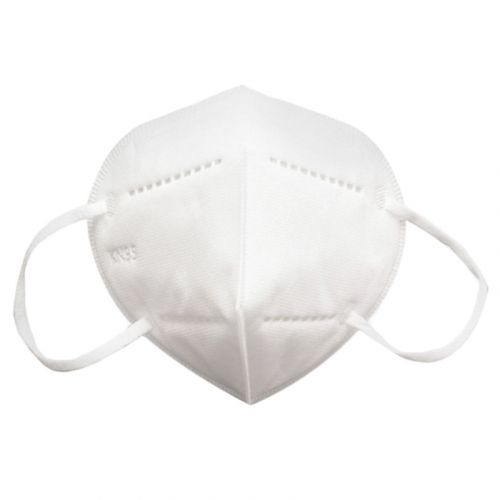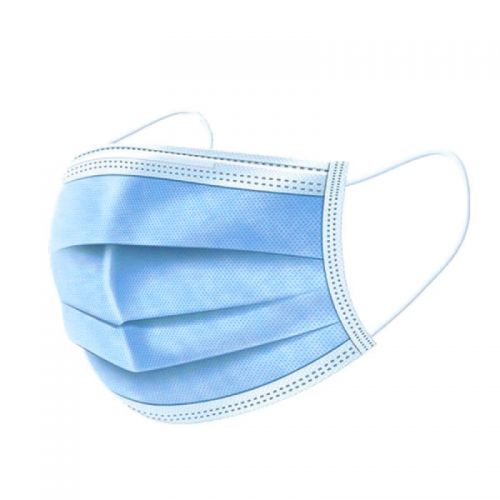Difference Between Surgical Masks And N95 Respirator Masks
- Posted by ProImprint
- Posted on April 21, 2020
N95 respirator masks are medical graded personal protective equipment that is used to protect the wearer from airborne particles and droplet infection risks. These high- end masks are ideal for medical personnel and front line Covid- 19 care givers who are at a risk of coming in close contact with the patients.
These respiratory protective devices ensure a very close facial fit and can efficiently filter airborne particles and 95 percent of very small (0.3 micron) test particles. However, even a properly fitted N95 respirator does not completely eliminate the risk of illness.
Precautions
People with chronic respiratory, cardiac, or similar medical conditions should consult their health care provider before using an N95 respirator because it can make it more difficult for the wearer to breathe.
N95 respirators with exhalation valves should not be used when sterile conditions are needed.
N95 respirators are not designed for children or people with facial hair because a proper fit cannot be achieved, which means that the N95 respirator may not provide full protection.
These are single-use, disposable devices that have to discarded safely after use
Surgical Masks
A surgical mask is a disposable face mask that makes a physical barrier between the mouth and nose of the wearer and potential contaminants in the immediate environment. These are for one time use only and have to be disposed off safely without the risks of contamination. It is recommended to place a used mask in a plastic bag and put it in the trash to safely discard it. Wash your hands after handling the used mask.
Surgical masks must not to be shared among multiple users. These can only prevent droplets from entering the mouth and are not designed to filter away microbes and germs.
Surgical masks are available in different thicknesses including 3 ply design. These features may also affect how easily you can breathe through the face mask and how well the surgical mask can protect you. Surgical masks when worn properly can block large-particle droplets, splashes or sprays from getting into your nose and reduce the risk of exposure of your saliva and respiratory secretions to others.
Though surgical masks do not offer complete protection from germs these can slow the spread of the virus by cutting down the risks of droplet infections. It is recommended to wear a cloth mask or a face covering to not just stay safe from droplet infections from outside but also to prevent transmitting the germs to others as people with no symptoms could also be carriers for Covid-19.
To sum up, N95 respirators are rated as critical supplies that are best reserved for health care workers and other medical first responders. For general public, any face mask or covering will make a good option to prevent droplets from entering the mouth or leaving their mouth to infect others.
Client Favorites
Shop by Products
Blog Categories
- Apparel
- Apparel Accessories
- Auto, Home & Tools
- Awareness events
- Back to School
- Bags
- Beach Balls
- Beanies and Toques
- Blankets
- Budget Gifts
- Business News
- Calendars
- Can Coolers
- Christmas Promotional Products
- coasters
- Cooling Towels
- Corporate gifts
- Covid-19
- Custom T Shirts
- Dentist Industry
- Drinkware
- Eco friendly
- Employee gifts
- Employee Spotlight
- Face Masks
- Fall Season Gifts
- Folding Chairs
- Food & Candy
- Free Set up products
- Free shipping items
- Frisbees
- General
- Golf Products
- Halloween gifts
- Hand fans
- Hand Sanitizers
- Hats and Caps
- Health & Wellness
- Holiday season
- Independence Day Gifts
- Industry Specific
- Infographics
- Keychains
- Lip Balm
- Luggage Tags
- New Product Launch
- New Year Promotional Products
- Office & Awards
- Openers
- Outdoor & Sports
- Pet Supplies
- Product Videos
- promotional gifts
- Reusable straws
- Spring Promotions
- Stress Balls
- Stress Relievers
- Summer products
- Sunglasses
- Sunscreen
- Tailgate party
- Technology
- Thanksgiving
- Top selling
- Toys & Novelties
- Trade Shows
- Umbrellas
- Under $1
- Valentine's Day
- Wedding
- Wine gifts
- Winter promotions
- Writing
- yoga accessories
Have a budget and no clue what to do?
Or you want some high end swag you don’t see on our site?
Talk to a specialist and let us help you look like a hero!













